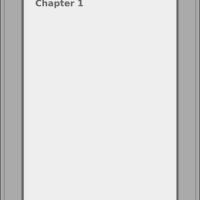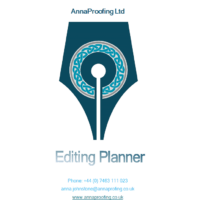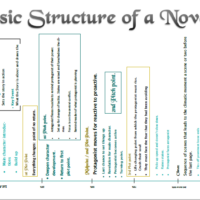by | Jan 20, 2017 | Advice, Blog
Writer’s First Rule.
People pay you for your work. Not the other way around. If someone asks you to pay money, ANY money, in order represent your work you need to do several things:
- Tell them you are no longer interested
- Block their number
- Add their email to your ‘blocked senders’ list
Preditors & Editors was an excellent source list of the good, the bad, and the evil in the world of writing services, but unfortunately, it appears to no longer be active.
The advance.
The sum that the publisher pays you which reflects expected sales. Unless you break the contract that’s yours regardless of how well your book sells
Earn-out
Well done. Your book has earned back your advance and then some. You now get to keep your royalties.
Rights
This is the permission you give to the publisher to publish your work in a specific form, language and place. A legitimate publisher will pay you for these rights as part of your contract, but not on a permanent basis. At the end of a set term they revert to you and if that publisher wants them back, they have to pay again. Do not sign any contract which gives the ‘publisher’ permanent rights.
Royalties
A payment structure which offers a percentage of each sale to you. An average figure would be 6-9% for paperback and 10-12% for a hardback. Ebooks earn a whopping 25%. Often the rate increases as more are sold. It is vital that you get a regular statement for these.
Getting paid
The publisher will give you an advance based on what they think they can sell, then royalties on each copy sold. If you have an agent, you will have to pay a small percentage in return for representation. Your royalties should be paid on at least a six-monthly basis from a large publishing house. Smaller ones may have a shorter schedule.
A £10k advance (lucky you) to sell your hardback novel at £10 each at a rate of 10% would earn the writer £1 per copy. They would have to sell 10,000 copies to earn out that advance. Selling anything over 10k copies is when they start paying you the rate switches around and the publisher gets £1 per copy.
Writer’s Second Rule
The agent only gets paid based on what you sell. You do not pay an agent to represent you. 15% is about average. and they don’t get paid until you do.
There may be odd business tax expenses that you need to take care of but these are infrequent and not the same as fees.
What are agents for?
- Handling contract negotiations
- Submissions of manuscripts to editors. Many of the big publishers do not accept manuscripts without an agent. You may struggle with this without an agent.
- Career advice
- Troubleshooting any problems between publisher or editor and you.
- Handling foreign rights, TV, film etc.
- Some might offer editorial assistance
How involved the get will depend entirely on the agent. Always be sure about what you want, and that they are prepared to provide it. If they want 15% of your hard earned royalty, they must earn it. Whether you opt for an agent is entirely up to you. Do not be tricked into believing you must have one for ‘legal reasons’. Anyone can hire a solicitor to look over a contract, but this is a one-off expense and it won’t mean giving up 15% of your sales.
How do I catch one?
You will need to write a convincing query letter along with a sample of the manuscript. Remember the agent won’t get paid unless it sells, they are going to need to be convinced that their time and effort won’t be wasted on a dead-parrot. If an agent accepts straight away or asks for a fee, walk away.
Writer’s Third Rule
Never pay a publisher. A publisher’s role is to print and sell books. The honest ones pay writers to produce work to print. If they ask you for money, run away. These publishers either have no ability or intention to provide marketing or distribution because you have already given them what they are looking for. Money. You would be better off doing it for free on Amazon, a free WordPress blog to serve as an author website, a free facebook page and a twitter account. Be aware that self-marketing without paid advertising is very time consuming and labour intensive (take it from someone who has been working their socks off trying to get a new start-up off the ground for the best part of a year).
Editors.
- Hired by a publishing house to buy the manuscripts for print and sale, or
- Freelancers who help writers get their work to a level where it is fit to be published.
Publishers’ editors are paid by the publishing house, not you, and will work with you until they are happy that the work is saleable. They are responsible for the quality of the finished product.
I am in box number 2. We’re hired by writers to help get your work to a standard where it can be sold. On average you can expect to pay between £25 and £100 per hour for their time and skill. Many of us prefer to charge by word count as it is never clear how much work will be needed on an individual manuscript. If you are looking to publish traditionally, you do not need to hire an editor to get the book ‘ready’ as the in-house editor will do that, but you will need to be certain that the work is of a professional quality. The publishing house should not be asking you for any money to do this work.
If you are looking to publish traditionally, you do not need to hire an editor to get the book ‘ready’ as the in-house editor will do that, but you will need to be certain that the work is of a professional quality. The publishing house should not be asking you for any money to do this work. If you are looking into self-publishing, then an editor is a must. A bad or cheap edit will stand out a mile.
You are not looking for cheap here either. Look at testimonials, look at their websites etc. If they are dirt cheap and have no testimonials, there will be a good reason. If a freelance editor demands more than a 50% upfront deposit, do not hire them.If they don’t offer free samples or refuse to offer a service agreement, these are also red flags.
Self-publishing is not the same as ‘vanity-press’.
Thankfully the stigma of self-publishing has somewhat decreased in recent years, and it has been made easy what with the rise of Amazon Kindle, iBooks, Kobo, Smashwords and Createspace et al. which are generally free except in terms of time and effort. Traditional publishing has been known to take in excess of a year to get books from the author to the page and into the shops. The cost of self-publishing comes in the fact that you are in charge of your own cover, editing, marketing etc. There are also no advances. On the other hand, royalties are paid monthly, come at around 70%, you retain all the rights. It is very important to read all of the terms and conditions before signing up to any of these services. Exclusivity deals, while on the surface might look fruitful but be aware that in recent weeks Amazon has been known to delete whole accounts on the basis of a suspicion. You will have to look carefully into all your options before deciding which route to take.
Sources
More on editors etc.
by | Dec 29, 2016 | Blog
Two more days left of 2016, and it has been quite an eventful year. In the latter half of this year, I not only finished my degree but have taken a somewhat, though not wholly, unexpected turn in my plans, career wise. It’s also about this time of year where I give myself a self-audit regarding where I am, where I want to be and how I plan to get there. Don’t worry I am not going to drop everything and start backpacking around Asia or something. Travelling is simply not feasible…yet. The other reason is that I would rather spend the money on my kit for Viking re-enactment.
I knew from the age of around 15 that I wanted to do something involving writing. Sadly, I allowed my parents and teachers discourage me. To cut a long boring story short, I am getting another crack at the whip. When I began my studies in February of 2011, I had my heart set on teaching History in a classroom setting. I got keener as I progressed but in the last year or so I have been considering my Plan B options: Open University grading policy has meant that my results were not what I needed them to be to get on to any of the training courses. I had certainly not seen myself as a self-employed Freelancer I cannot say that it wasn’t a disappointment because the same results from a ‘brick’ university would have got me a 2:1 or even a first, but what’s done is done. I still managed it while looking after 3 kids, so yay me. I am sure my sleep patterns will recover soon, and this (theoretically) lets me off taking my maths GCSE. Again (shudder). That said, I am thinking of taking it anyway just so I have that apparently necessary C that I have managed quite happily without for the last 16 years. I am yet to find a practical use, in my field, for knowing how to calculate the area of a circle.
A suggestion from a fellow editor made me give editing and proofreading a go and I am glad I took him up on his advice. I love it and have since set myself up as a freelancer. This means I have the freedom to set my own hours. It has also taught me that I not only need to learn when to stop working and think about something else for a while but actually do it. Looks like I have a New Year’s resolution to keep for next year. I am feeling extremely positive about this new direction. It’s a teaching role (of sorts), just the one I was expecting and I will get to use all my skills.
NaNoWriMo was an eye-opener, to say the least. I gave it a good shot, but I then ended up with a beta-read that I couldn’t turn down. Next year I’m going to make sure I schedule enough time to do my own writing. I have an idea lined up but I have a strict ‘no spoilers’ rule. It will give me plenty of time to finish the first draft of this month’s, edit and get it ready for publishing. I’m really excited about this too. NaNoWriMo gave me the boot up the bum to make a real start on it. The Densewords ‘Readworthy Fiction’ course (available via Udemy) is also proving to be a massive help where printed writers’ guides were not. I would recommend it to any author.
Finally, 2017 will be the year I get my driving license. I have procrastinated for long enough. I will be 36 in April and have decided that now it’s time to stop being a massive wussy and do it.
To-do-List for 2017.
- Finish first-draft of my first novel, (for publishing in December 2017)
- Learn to drive
- Retake maths (yuck)
- Learn when to stop.
Call to action!
What are your top four priorities for 2017?
by | Dec 23, 2016 | Blog, Video
I am really out of practice with the software, so bare with me. They will get better. I have not yet bucked up the courage to actually appear in a video, but give me time and I am sure it will happen.
[youtube=https://youtu.be/iwRm73Yt0hc]
by | Dec 6, 2016 | Advice, Blog
Choosing an editor is not easy. The good ones have fees that could choke a horse. However, they are GOOD editors, so the fees they charge are worth it. If you can afford those fees. Unfortunately, many Indie authors just can’t break out that kind of cash.
Enter the rip off artists. They come in many levels of incompetence from authors who just want to make some side cash but don’t really know how to edit, to outright thieves who will take your money and give you nothing in return. Unfortunately, the latter kind thrives on the internet. We have all heard the stories of writers victimised by people calling themselves editors but didn’t even fix spelling mistakes, much less formatting, style, or continuity issues. As an editor myself, I am always learning and improving my craft this kind of thing makes me so angry – not least because it taints all freelance editors with the same reputation – but rest easy. This post is not an estate agent type post telling you to only trust me and ignore all those other editors. Finding the right editor for you is important.
So here are some guidelines for how to find the honest ones, pick an one, and dealing with them. Feel free to pipe up in the comments with any other suggestions I might have missed.
- Go with someone you know or who is recommended. If you can’t do that, the following steps can help.
- Do your research: collect reviews and referrals. How do they respond to complaints?
- Ask for a sample edit from the first chapter of your book, before any money changes hands. A new editor should be willing to do this to get your business, and most honest editors offer this as standard.
- Have someone you already trust and knows what they are doing, read the sample and let you know if they are good.
- Try to find one who will take a deposit up front and charges balance when the job is complete. If they demand the whole balance up front, steer clear. That said, I do expect full payment up front for small jobs (less than 10 pages =2500 words), but 50% of that is refundable if the client is not happy with my work
- Generally, I would advise you to avoid those who demand the full amount upfront. If their work is genuinely substandard –this is not the same as being unhappy about harsh feedback- do not pay the balance and demand your deposit back. New writers should be aware that it often takes several rounds of editing before your work is publishable.
- No editor can wave a magic wand and suddenly turn an unstructured first draft into a literary marvel in one go, and no reputable editor will claim to be able to. It depends entirely on the submitted work.
- Not all editors offer the same services or deal with the same type of text. You need to find out which genre they will work with and what levels they offer. I offer all four levels and am pretty much happy to edit whatever crosses my desk. Others may only deal with certain genres, or offer higher level editing. An honest editor will use your work to assess the level you are writing at and determine what the work needs. They will advise you what needs to be done, and if they are not able to offer the full scope of work required, you may find they will point you in the direction of someone who can.
- If you have ever dealt with an editor who has given you less than the quality of work promised for your money, you still have rights. A freelancer is subject to the same consumer laws as everyone else.
- You want to engage with someone who will cut deep and pick up the typos and mistakes. Remember, a good editor is on your side. A reader is not. The editor wants you to be able to publish your best work possible. You are not looking for ‘nice’. If they go too easy on you or appear to be in a rush to get to print, it can still count as bad editing. The reader will not be nice or give you the benefit of the doubt as it’s your first book. They will, at best, put your book down and never read your work again. At worst, they will leave a scathing review from wherever they bought it, and they will still never read your work again.
- A good editor will not point you at a publisher or insist that their services rely on you going with a particular press. If they do, they are probably taking a back-hander. I’m afraid you will have to do your homework for that too.

by Michelle Dunbar Editing Solutions | Oct 26, 2016 | Advice, Blog, Uncategorized
Having spent months, and possibly years on your manuscript, writing, editing, rewriting, editing, and then tweaking it a few more times for good measure, the time will come when the services of an editor will be required. But with so many editors to choose from, all with a wide range of pricing and experience, how do you work out who to hire?
And where do you even begin?
My advice, first of all, would be to seek out the personal recommendations of your fellow authors. Some may have been lucky enough to have found an affordable, yet excellent editor.
Armed with a short list of names to consider, you should take the time to visit each of the editor’s websites with a view to finding answers to the following:
- Do they offer the editing service you are looking for?
- Are they experienced in the editing service you are looking for?
- Do they have a good knowledge of your chosen genre?
- What does the editor charge? (Please note that not all editors list their prices on their website)
- Do they have testimonials/reviews you can read?
- Your initial impression of their website? Does the editor seem organised? Professional? Is their website in disarray and littered with typos?
- Do they offer free sample edits?
With some of your questions answered, and a chosen editor in mind, it’s time to make ‘first contact’ so you can continue your assessment of them.
Introduce yourself, the genre and word count of your manuscript, what editing package you are considering, and enquire about sending them an excerpt of your manuscript for a sample edit. When engaging in communication, consider their level of professionalism and knowledge, as well as their response time. Do they reply within 24/48 hours or are you left hanging on for days? Initial communication can be a good indicator of what to expect if you hire this editor.
I cannot stress enough how important it is to find an editor who is not only experienced and knowledgeable but who you like and feel comfortable with. Likewise, the editor needs to feel comfortable about working with you too. Editing isn’t about going to battle over a particular scene or style of punctuation, it’s about working together with the shared aim of making your book the best it can be.















